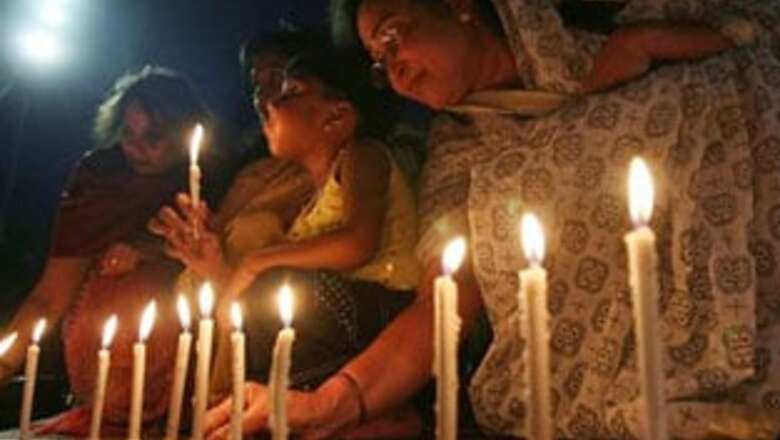
views
Dhaka: Tens of thousands of mourners were attending a state funeral on Monday for dozens of Bangladesh army officers killed in a mutiny last week.
The bloody rebellion by Bangladesh Rifles (BDR) paramilitary troops at their Dhaka headquarters ended on Thursday, but not before causing a major security alert and alarming a government that has been in power for less than two months.
Coffins draped in national and army flags were brought to Dhaka's military stadium and placed on a red carpeted podium as army officers and troops said prayers for their comrades.
Relatives of the dead officers came from all over the country to attend the service, many breaking down in tears as bugles played the last post.
The mutiny by the BDR troops, who are traditionally commanded by army officers, killed at least 80 people.
The rebels also murdered their commander-in-chief, Major-General Sakil Ahmed, and his wife.
The paramilitary troops usually guard the borders but also help army and police on other security issues.
They mutinied over pay and other conditions.
Dozens of bodies of officers have been retrieved from mass graves, sewers, drains and canals within the BDR complex, but at least 70 officers are still missing, believed dead.
Prime Minister Sheikh Hasina has ordered the establishment of special tribunals to try the killers and has sought help from the US Federal Bureau of Investigation (FBI) and Britain's Scotland Yard.
Police said they had identified up to 1,000 BDR members as suspects, and some could be charged with murder.
The military at the weekend pledged its loyalty to Hasina, who came to office two months ago after winning a parliamentary election that brought to an end two years of emergency rule by an army-backed interim government.
Bangladesh has suffered several military coups since independence in 1971, but officials have said this mutiny was not politically motivated.
It still came as a blow to Hasina, who must convince foreign investors and aid donors she can bring stability to a country where 40 per cent of the 140 million population lives in poverty.


















Comments
0 comment